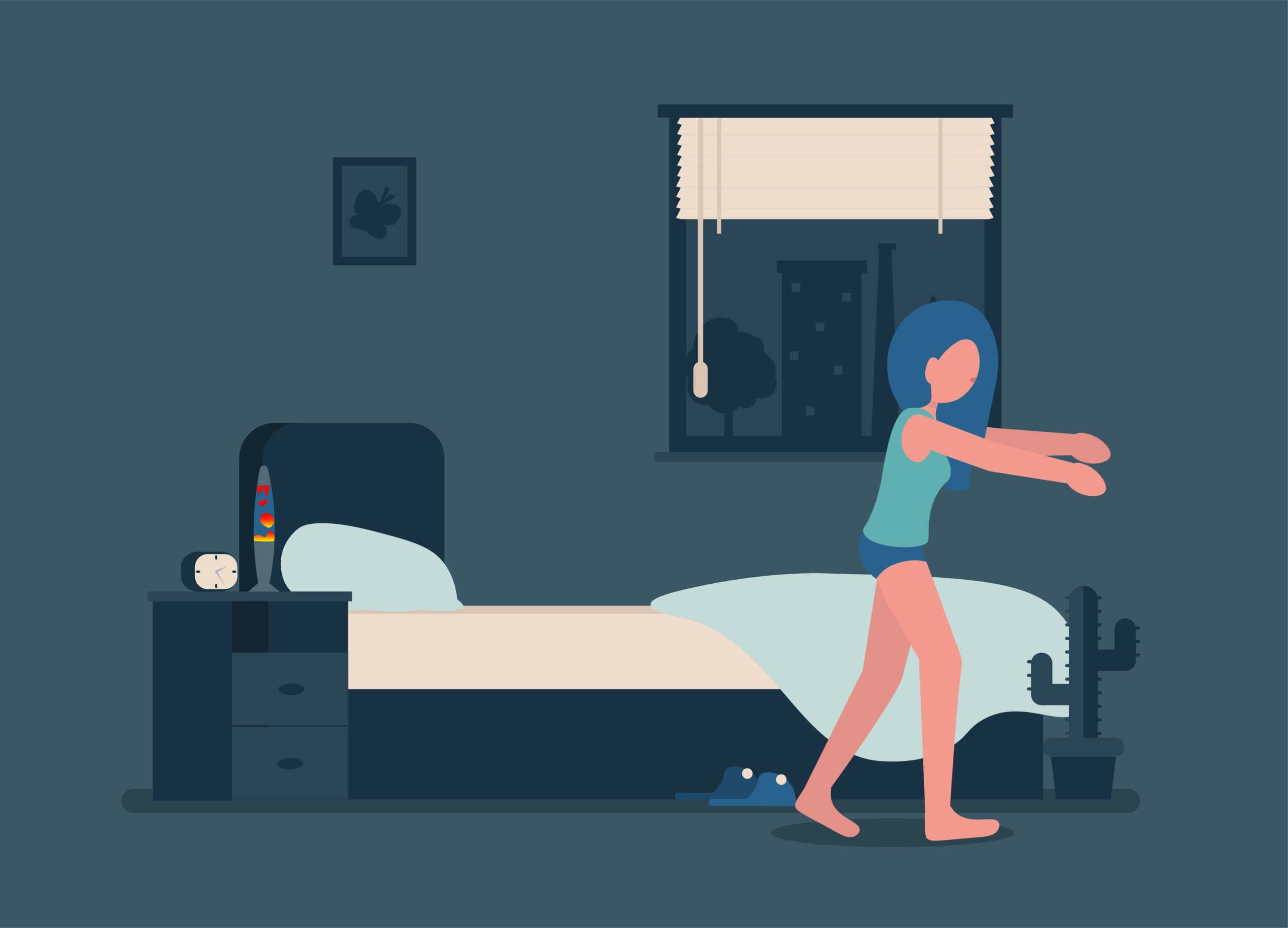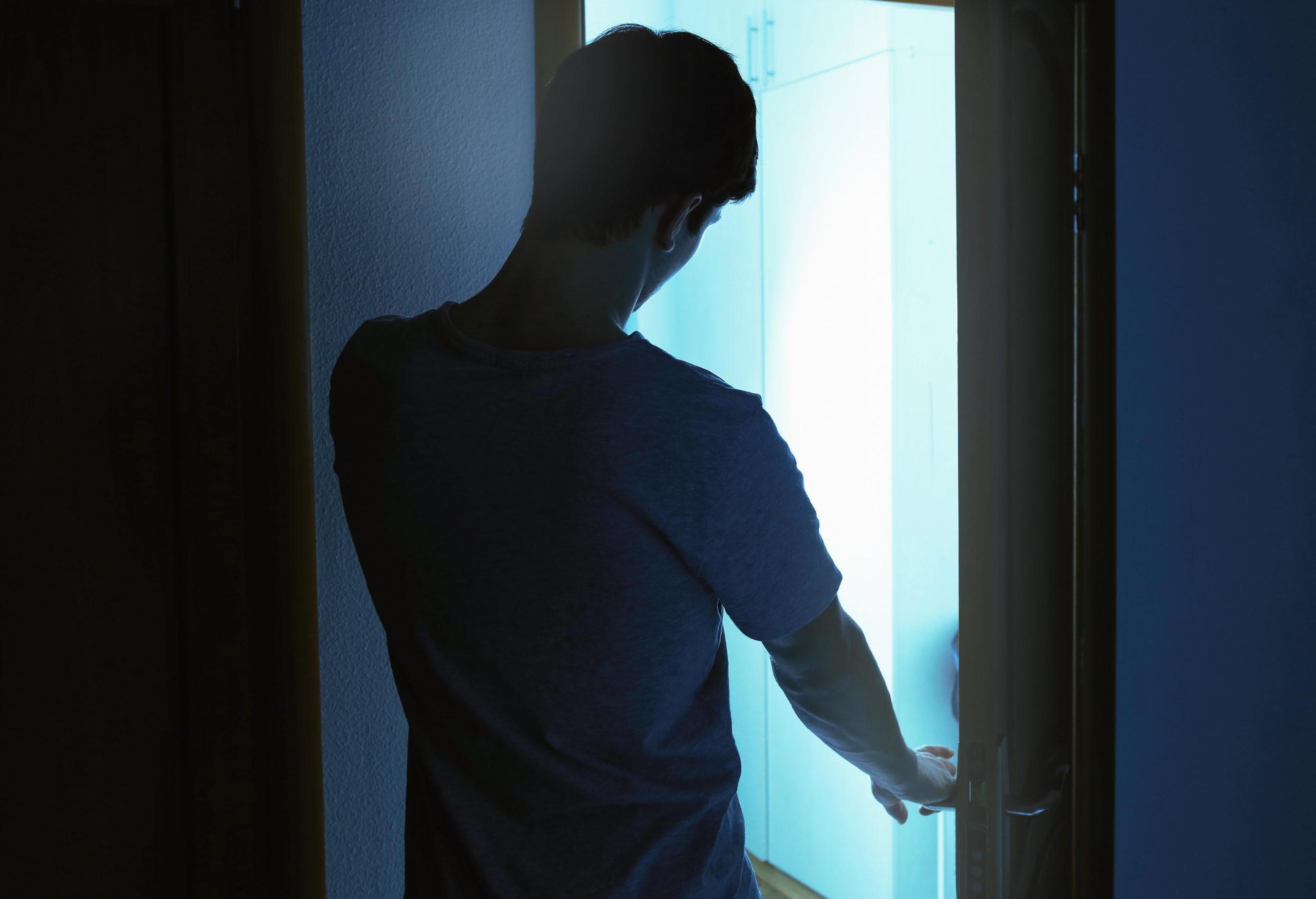Somnambulism, now known as sleepwalking, is a sleeping behavior disorder that kicks in during deep sleep and results in involuntary walking or other complex behaviors while still being asleep. This condition is more prevalent in children and is more likely to happen if that person has a family history of the condition, is prone to nighttime awakenings, or is sleep deprived.
During these sleep/wake episodes, accidents can be dangerous but not necessarily fatal. Therefore, in most cases, active treatment is not necessary to treat the condition. However, if these episodes are more persistent or intense, several treatment options are available. Let’s take a closer look at the condition, what causes it, and what to do about it if things worsen.

Is Sleepwalking a Serious Disorder?
Sleepwalking is a type of sleep disorder known as parasomnia. Parasomnias are irregular behavior during deep sleep. In fact, parasomnias operate in the border between sleep and wakefulness, so everything that occurs during these episodes is somewhat abnormal or incoherent. Parasomnias are classified based on the part of the sleep cycle during which they kick in. For example, sleepwalking occurs during non-REM (NREM) sleep ( stage III of the sleep cycle), also known as deep sleep. Thus, along with other parasomnias like sleep talking or sleep terrors, sleepwalking is categorized as an NREM disorder of arousal.
Is Sleepwalking Dangerous?
While this condition poses a threat to a person’s immediate health, there can be severe consequences. Injury can occur if the troubled sleeper trips and falls over stairs or collides with something harmful. In some cases, the sleeper can manage complex actions such as handling sharp objects or driving a car. In these cases, such episodes can be life-threatening. In addition, violent behavior can cause harm to others.
Behaviors during these episodes may make a person embarrassed and confused. For example, a person may feel embarrassed about sexually graphic behavior, disruptive upheavals, or peeing in the wrong place.
Studies have observed that people prone to sleepwalking have more concerning excessive daytime drowsiness and insomnia symptoms.
Moreover, sleepwalking can be consequential for a bed partner or roommates. Sleepwalking episodes can disrupt their sleep, and they can be negatively affected by their behavior during these incidents.
What Causes Sleepwalking
Causes of sleepwalking include:
- Hereditary.
- Lack of sleep or extreme fatigue.
- Interrupted sleep or poor sleep, from disorders such as sleep apnea.
- Illness or extreme fever.
- Certain medications (sleeping pills).
- Sustained Stress or anxiety.
- Going to bed with a full bladder.
- Alterations to the sleeping environment or different sleep setting (example: hotel rooms).
- Head injuries.
Treatments For Sleepwalking
Anticipated Awakening
Anticipated awakening is waking someone up right before a possible sleepwalking episode occurs. Because sleepwalking is linked to a specific sleep stage, it usually happens around the same time. Therefore, waking someone up just before an episode kicks in can prevent them from having the incomplete awakening that can prompt sleepwalking.
Anticipated awakening has been used effectively by many concerned parents in helping their children stop sleepwalking. It may be helpful for children but not necessarily for adult patients.
Sleep Hygiene
Sleep hygiene is a person’s sleep-related environment and pre-bedtime habits. Poor sleep hygiene, such as having an inconsistent sleep schedule or drinking alcohol close to bedtime, can contribute to many sleeping problems and sleep deprivation. Other facts can include having an uncomfortable mattress or drinking coffee at night. Improving sleep hygiene promotes steady and quality sleep while decreasing the risk of sleep deprivation that may trigger a sleepwalking episode.
Cognitive Behavioral Therapy
Cognitive-behavioral therapy (CBT) is a kind of talk therapy that prevents negative thoughts and behaviors. CBT for insomnia (CBT-I) has shown effectiveness in promoting quality sleep, often by restructuring how a person views sleep. In addition, adaptations of CBT for stress and anxiety, and careful utilization of CBT, including relaxation techniques, may help counteract stress-related sleepwalking episodes.
Medication
If other treatments have not proven effective, medications may be delivered to stop sleepwalking. Examples include benzodiazepines and antidepressants. In addition, early studies have indicated that melatonin may help manage sleepwalking as well. Whether prescription or over-the-counter, any medication has possible benefits and side effects. Consult with a doctor to explore your options and determine whether a particular drug is appropriate for your specific situation.

Can I Wake a Sleepwalker?
Most specialists recommend against abrupt awakenings for people who are in the midst of a sleepwalking episode. Because they aren’t cognizant of their situation, a rough awakening may arouse fear, confusion, or in some cases, anger.
You can, however, try to gently stir a sleepwalking person away from lurking dangers and back to bed. A quiet, soothing voice or a light touch may be all you need to redirect them. If you need to wake up a sleepwalking person, try to do so in the most gentle way possible, and be aware that they may be disoriented upon waking up.
Takeaway
If you or someone you know (a partner) suffers from sleepwalking, consider calling your doctor if any of the following occur:
- The episodes are persistent and severe.
- The sleepwalker gets frequently injured during these events.
- The sleepwalker finds his/her way out of the house.
- You think there might be a medical cause for the sleepwalking, such as a convulsion disorder, sleep apnea, or an involuntary limb movement disorder.



